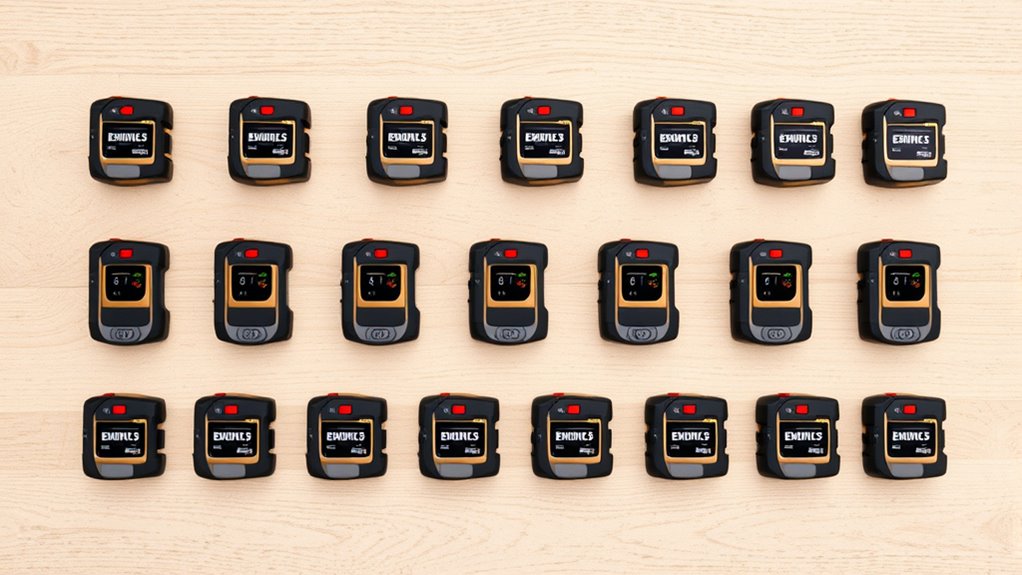Looking for the best magnetic stud finders to trust in 2025? I recommend models with strong magnets, like the 52300 Studball with 27 pounds pull force, and versatile options like the 6-in-1 wall scanners. These tools are simple to use, battery-free, and perfect for drywall and metal fasteners. They work best on surfaces with metal studs or nails, but I’ll share more tips to help you choose the perfect one for your project.
Key Takeaways
- Choose models with strong magnets and high pull force (up to 27 pounds) for reliable detection through drywall.
- Prioritize tools designed specifically for ferrous metal fasteners, ensuring accurate stud and nail location.
- Opt for compact, durable, and easy-to-use designs with features like marking arrows or lock-on lights.
- Consider compatibility with wall types—best on drywall, less effective on lath and plaster or thick surfaces.
- Read reviews and specifications to ensure the magnetic stud finder offers precise, consistent performance in 2025.
52300 Studball Magnetic Stud Finder (27 Pounds Pull Power)
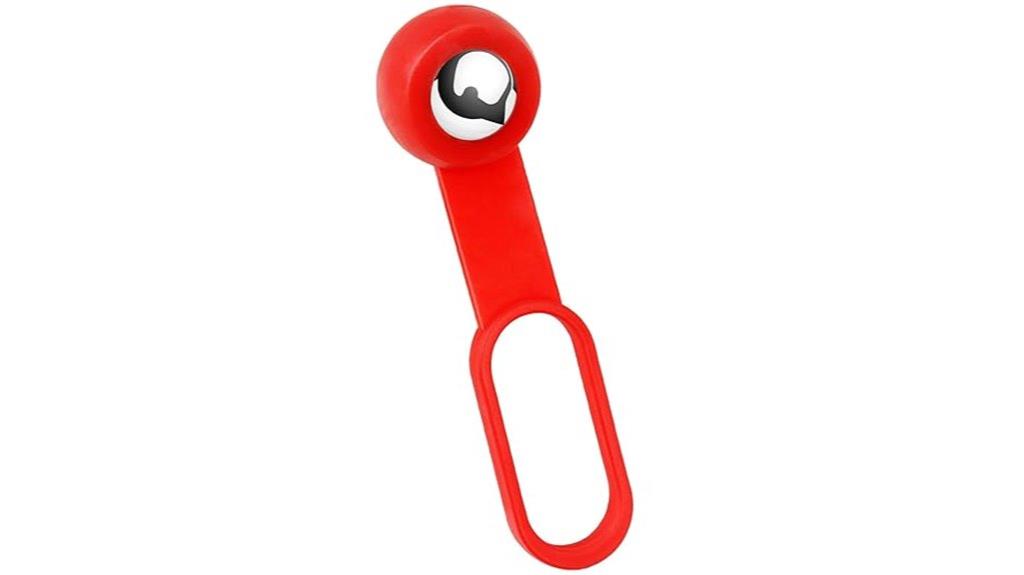
If you’re looking for a highly reliable magnetic stud finder that requires no batteries, the 52300 Studball offers an impressive 27 pounds of pull power with rare earth magnets. Its strong magnetic force easily detects metal screws and nails in walls, drywall, plywood, ceramic tiles, and wood panels. You can quickly locate studs behind 5/8″ drywall in under a minute, making it perfect for DIY and professional projects. Simply run the magnet along the surface—no calibration or marking needed. It’s versatile enough to find small metal objects or hang tools, making it a practical, no-fuss tool for wall mounting and construction tasks.
Best For: DIY enthusiasts and professionals seeking a battery-free, reliable magnetic stud finder for quick and accurate wall mounting and metal detection.
Pros:
- No batteries required, making it maintenance-free and easy to use anywhere.
- Strong 27-pound pull power with rare earth magnets ensures reliable detection of nails and screws.
- Versatile for locating studs, small metal objects, and hanging tools, suitable for various materials and surfaces.
Cons:
- Does not directly detect studs but relies on finding fasteners, which may require some interpretation.
- Can leave marks on walls if not used carefully; recommended to use the opposite side of the magnet.
- Slightly higher price point compared to basic magnetic stud finders, which may be a consideration for budget-conscious users.
2 PCS Magnetic Stud Finder, No Batteries Required
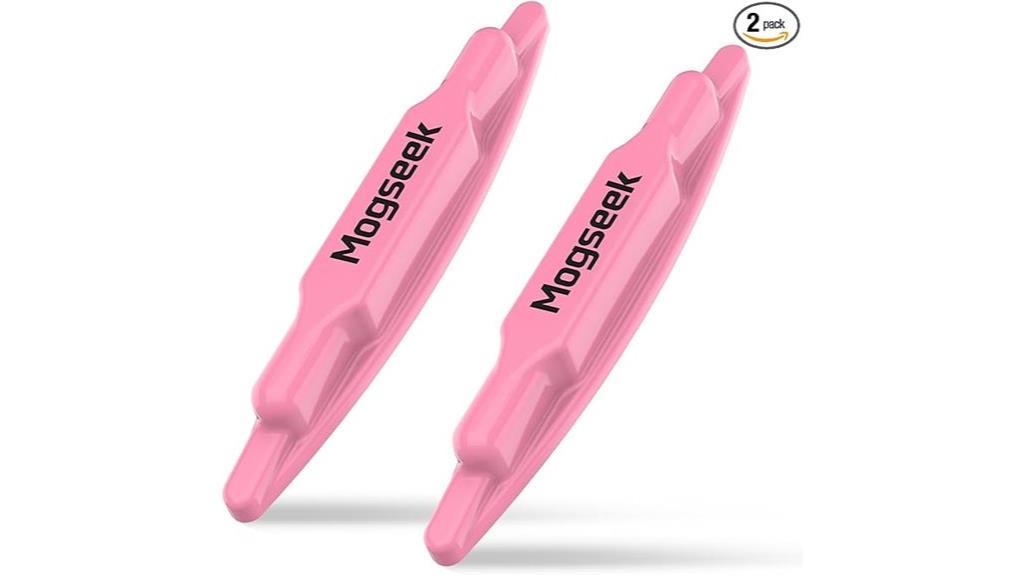
The PCS Magnetic Stud Finder stands out for those seeking a simple, reliable tool that requires no batteries or electronic calibration. I love how it effectively locates wood and drywall studs, nails, screws, and metal behind walls without any fuss. Its compact design fits perfectly in my pocket, making quick scans effortless. The strong neodymium magnets ensure it sticks securely to metal fasteners, indicating stud edges or centers. Plus, it’s lightweight and ergonomically designed with an anti-scratch surface, so it’s comfortable to hold and wall-friendly. No batteries, no false alarms—just dependable, straightforward performance I can trust for any drywall project.
Best For: DIY enthusiasts and homeowners seeking a simple, reliable, battery-free tool for locating studs and metal fasteners behind walls.
Pros:
- No batteries, calibration, or electronics required for hassle-free use
- Strong neodymium magnets that securely attach to metal fasteners, ensuring accurate detection
- Compact, lightweight, and ergonomically designed for comfortable handling and easy portability
Cons:
- Less effective on lath and plaster walls where metal fasteners are sparse or harder to detect
- May have limited strength on very thick or dense drywall, reducing accuracy
- Lacks electronic indicators like beeps or lights, relying solely on magnet attachment for detection
Magnetic Stud Finder with 20mm Stud Ball

The Magnetic Stud Finder with a 20mm Stud Ball stands out for its powerful 6800 Gauss magnet, which can find studs and metal objects without batteries. Its triple-layer coating of NI+CU+NI enhances durability and magnetic strength, ensuring quick, accurate detection through drywall, tile, or plywood. The streamlined, rubber design allows the magnetic ball to cling securely to walls, even through materials up to 3/4″ thick. Weighing just 1.76 ounces and measuring around 3.35 inches, it’s lightweight and highly portable. Supporting up to 27 pounds of pull force, it’s perfect for DIY projects, hanging items, or metal detection in hard-to-reach areas.
Best For: DIY enthusiasts, homeowners, and professionals needing quick, battery-free metal and stud detection through various building materials.
Pros:
- No batteries required, making it maintenance-free and easy to use.
- Strong magnetic pull force of up to 27 pounds ensures reliable detection of studs and metal objects.
- Effective through multiple materials including drywall, tile, plywood, and Hardie board, with high accuracy and quick results.
Cons:
- Slightly higher price point may be a concern for budget-conscious buyers.
- Limited to magnetic detection; cannot identify non-metallic materials or hidden objects without metal.
- The magnetic ball may attract nearby ferrous objects unintentionally, requiring careful handling during use.
Powerful Magnetic Stud Finder (Upgraded Version)

For those seeking a reliable, battery-free stud finder, the Powerful Magnetic Stud Finder (Upgraded Version) stands out with its reinforced design featuring three neodymium magnets. This enhances its ability to detect both wood and metal studs deep within drywall or walls, ensuring accurate pinpointing. Its see-through design and marking arrows make marking fasteners easy, allowing for precise, damage-free drilling. Covering more wall area per pass, it speeds up your project without sacrificing accuracy. Weighing just 1.9 ounces, it’s portable, durable, and perfect for hanging TVs, shelves, or fixtures. While some improvements are possible, it’s a simple, effective tool for DIYers and professionals alike.
Best For: DIY enthusiasts and professionals seeking a durable, battery-free tool for accurately locating wall studs and fasteners without wall damage.
Pros:
- Reinforced with three neodymium magnets for deep, precise detection of wood and metal studs.
- Transparent design with marking arrows allows for accurate, hands-free marking and drilling.
- No batteries required, making it portable, durable, and always ready for use.
Cons:
- May struggle to detect fasteners buried deeply in very thick or textured walls.
- Plastic surface can scratch over time with repeated use.
- Magnet strength could be improved for even more reliable detection.
The StudBuddy Magnetic Stud Finder Tool

If you’re seeking a reliable, no-fuss tool for locating studs behind drywall, the StudBuddy Magnetic Stud Finder is an excellent choice. Made in the USA from durable plastic and high-strength neodymium magnets, it measures just 5.75 by 1 by 1.25 inches and weighs only 1.6 ounces. No batteries or calibration are needed—it’s always ready to use. Simply slide it across the wall, and its magnets will stick to metal fasteners in studs, quickly revealing their locations. Praised for speed, accuracy, and simplicity, many users find it more effective than electronic options for hanging shelves, TVs, or fixtures.
Best For: DIY enthusiasts and professionals looking for a simple, reliable, and battery-free tool to quickly locate wall studs behind drywall.
Pros:
- No batteries or calibration required, always ready to use
- Compact, lightweight, and easy to handle with a lock-on light for convenience
- Highly effective for drywall and wood, providing fast and accurate stud detection
Cons:
- Not suitable for lath and plaster or non-metallic walls where metal fasteners are absent
- Less effective on older or non-standard wall constructions without metal nails or screws
- Limited to detecting metal fasteners, so it may miss studs if fasteners are not present
52300 Studball Magnetic Stud Finder (27 Pounds Pull Power)
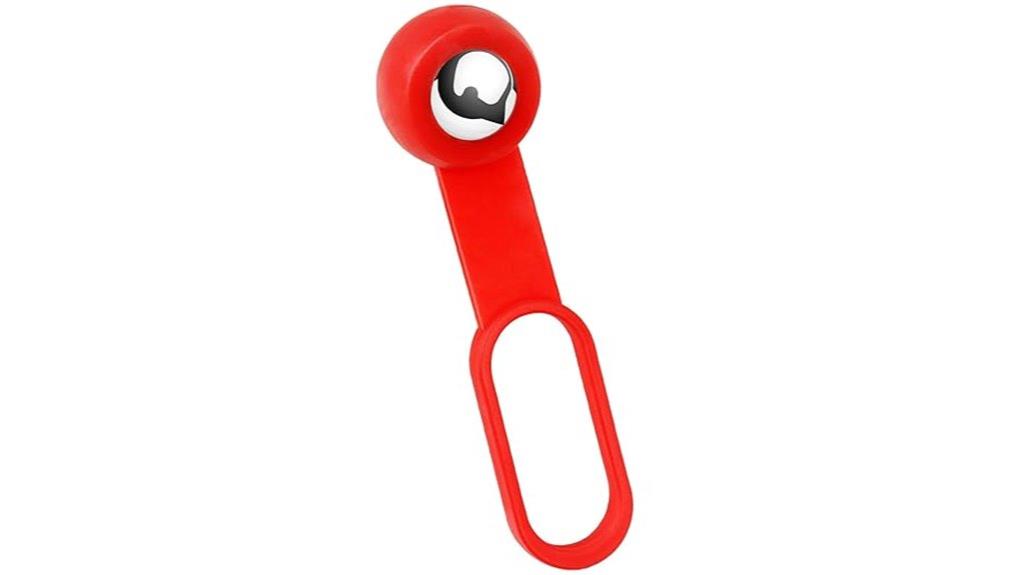
When searching for a reliable magnetic stud finder that combines power and simplicity, the 52300 Studball stands out with its impressive 27 pounds of pull force. Made with strong rare earth magnets, it’s a battery-free tool that effectively detects metal screws and nails in walls, drywall, plywood, ceramic tiles, and wood panels. It quickly identifies studs behind up to 5/8″ drywall, and can also find small metal objects on the ground or retrieve items from gaps. No calibration or marking is needed—just run it along the wall to locate fasteners. Its multifunctionality and strong magnetism make it a versatile choice for DIYers and professionals alike.
Best For: DIY enthusiasts and professionals seeking a powerful, simple, and battery-free magnetic stud finder for wall mounting, metal detection, and general metal object retrieval.
Pros:
- Strong 27 pounds of pull force with rare earth magnets for reliable detection
- No batteries, calibration, or complex settings required for easy use
- Versatile for locating studs, screws, nails, and small metal objects in various materials
Cons:
- Does not directly detect studs, only metal fasteners, which may require interpretation of findings
- Slight risk of leaving marks on walls if used on the same side as the magnet without caution
- Limited to detecting ferrous metals; cannot find non-magnetic materials or electrical wiring
Rack-A-Tiers Stud Ball Magnetic Stud Finder, No Batteries
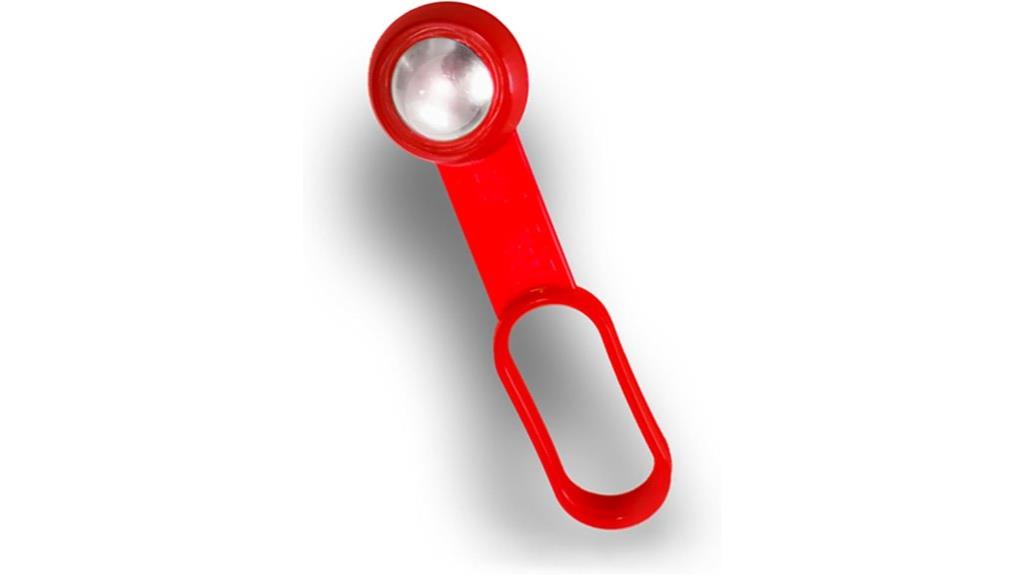
The Rack-A-Tiers Stud Ball Magnetic Stud Finder stands out as an excellent choice for those seeking a reliable, battery-free tool to locate metal behind drywall and other materials. Its spherical rare earth magnet delivers a strong pull force of 27 pounds, enabling quick detection of nails, screws, and metal studs through drywall, tile, and plywood. The round shape makes it easy to slide across surfaces and pinpoint exact stud locations without batteries or electronics. It’s lightweight, wall-safe, and highly effective for drywall repairs, mounting projects, or renovations. Many users appreciate its speed, simplicity, and consistent performance, making it a trusted tool for both DIYers and professionals.
Best For: DIY homeowners and professional contractors seeking a reliable, battery-free tool to quickly locate metal studs and nails behind drywall, tile, or plywood.
Pros:
- No batteries or electronics needed, ensuring low maintenance and durability
- Strong 27-pound magnetic pull for fast and accurate detection of metal studs and nails
- Spherical shape allows precise centering and easy sliding across surfaces
Cons:
- Magnet can stick to ferrous objects in tool belts or nearby metal surfaces, potentially causing storage issues
- Not suitable for use near magnetic recording media like credit cards or tapes, which could be erased
- May require protective storage to prevent unwanted sticking or damage
Plus Magnetic Stud Finder with Level, Made in USA

The Plus Magnetic Stud Finder with Level, made in the USA, stands out as an ideal choice for those seeking a durable and straightforward tool for drywall projects. Its compact, pocket-sized design eliminates batteries and moving parts, making it reliable and maintenance-free. Crafted from tough polystyrene with strong neodymium magnets and built-in levels, it’s easy to use and always ready. Simply drag it across the surface; it instantly detects metal fasteners in studs, ensuring accurate marking. Bright orange and red colors improve visibility. Perfect for drywall and wood walls, it’s a simple, effective tool for hanging fixtures or artwork without the fuss of electronic finders.
Best For: DIY homeowners, professionals, or anyone needing a reliable, battery-free stud finder for drywall and wood walls.
Pros:
- No batteries or calibration required, always ready to use
- Durable construction with strong neodymium magnets for reliable detection
- Compact, pocket-sized design with built-in levels for precise marking
Cons:
- Not suitable for lath & plaster or areas with concealed wiring and pipes
- May not detect non-metallic fasteners or in very old plaster walls
- Less effective on surfaces with minimal or no metal fasteners present
2 PCS Magnetic Stud Finder

If you’re looking for a straightforward and reliable magnetic stud finder, the PCS Magnetic Stud Finder stands out as an excellent choice. It uses strong neodymium magnets to quickly locate screw or nail heads behind drywall, making it compatible with most drywall constructions—though not suitable for lath and plaster walls. Compact and lightweight at just over 2 ounces, it’s easy to handle and won’t damage your walls. The ergonomic plastic grip ensures comfort during use. With no calibration needed and magnetic pull that secures firmly once a stud is found, it’s perfect for DIYers and professionals alike. Plus, you get two units in bright orange, packaged with clear instructions.
Best For: DIY homeowners and professional handymen seeking a simple, reliable tool for quick drywall stud detection without wall damage.
Pros:
- No calibration or false readings required, ensuring ease of use.
- Magnetic pull securely adheres to wall surfaces once studs are located, providing accurate positioning.
- Compact, lightweight design with ergonomic grip for comfortable handling.
Cons:
- Magnet strength can vary; some users report weaker magnets that may not work well on certain wall types.
- Not suitable for lath and plaster walls, limiting its compatibility with older constructions.
- The magnetic stud finders may require multiple attempts if magnets are insufficiently strong.
MagnetPal Magnetic Wall Stud Finder

For anyone seeking a reliable and easy-to-use magnetic stud finder, the MagnetPal Magnetic Wall Stud Finder stands out with its simple waving motion that quickly locates nails, screws, or steel studs behind various wall types. Just wave it about an inch from the surface, and the magnetic pull guides you to hidden metal behind drywall, plaster, tile, or wood. Its compact, lightweight design makes it portable and comfortable to handle. Built from durable materials, the magnet never rusts or fails, ensuring consistent performance in different environments. Perfect for DIY projects or professional use, it helps you mount fixtures accurately without false readings or wall damage.
Best For: DIY enthusiasts and professionals seeking a reliable, easy-to-use magnetic wall stud finder for quick, accurate wall measurements across various wall types.
Pros:
- Simple waving motion for quick and accurate detection of nails, screws, and studs
- Compact, lightweight, and portable design for convenience and ease of handling
- Durable magnet that resists rust and performs reliably in different environments
Cons:
- May have limited effectiveness on certain plaster walls or thicker surfaces
- No electronic or electronic display features, which some users might prefer for added precision
- Requires manual waving to locate studs, which can be less precise in complex wall structures
Stud Finder Wall Scanner (5-in-1) with LCD Display
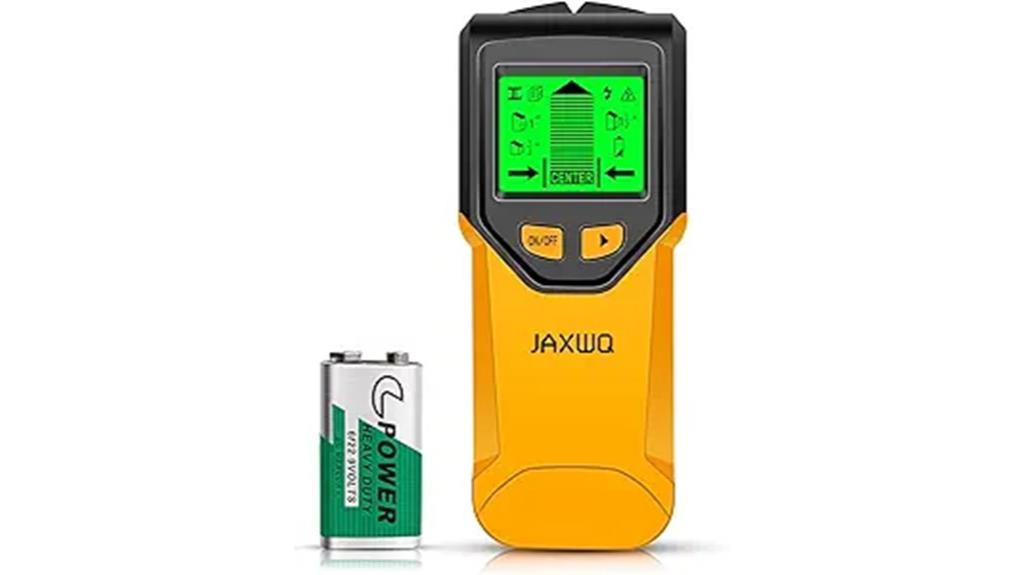
When searching for a versatile stud finder that can handle multiple wall materials and hidden hazards, the Stud Finder Wall Scanner (5-in-1) with LCD Display stands out. It’s equipped with a microprocessor chip and an HD LCD screen, allowing me to quickly detect studs, metal, pipes, joists, and live wires behind walls, floors, and ceilings. Its multiple scan modes—stud, deep, and metal—make it adaptable for different depths and materials. The bright display shows precise locations, edges, and center points, while audio alerts guide me. This tool makes hanging heavy objects safer and easier, especially when avoiding electrical hazards or plumbing behind the wall.
Best For: homeowners, DIY enthusiasts, and professionals seeking a reliable, multi-material wall scanner for safe and precise wall installations.
Pros:
- Equipped with a microprocessor chip and HD LCD display for accurate detection of studs, metal, pipes, and live wires.
- Multiple scan modes (stud, deep, metal) allow versatile use at different depths and wall types.
- Easy to operate with a bright backlit screen, audio alerts, and clear instructions, suitable for beginners and experienced users alike.
Cons:
- Occasional false positives and inconsistent accuracy when locating studs repeatedly.
- Performance may vary depending on wall material and object proximity, affecting reliability.
- Slightly larger size and weight may be less convenient for prolonged or one-handed use.
The StudBuddy Magnetic Stud Finder Tool
https://m.media-amazon.com/images/I/416uD8KlXXL._AC_SY879_.jpg
The StudBuddy Magnetic Stud Finder Tool stands out for its simplicity and reliability, making it an excellent choice for DIYers and professionals alike. Made in the USA from durable plastic and high-strength neodymium magnets, it’s compact and lightweight—just 1.6 ounces. No batteries or calibration are needed, so it’s always ready to use. The tool detects metal screws or nails behind drywall and wood walls by magnetic attraction, helping you find studs quickly and accurately. Its straightforward design, combined with strong magnetic hold and portability, makes it a favorite for mounting shelves, TVs, or fixtures without any fuss or electronics.
Best For: DIYers and professionals seeking a simple, reliable, battery-free tool for locating metal studs behind drywall and wood walls.
Pros:
- No batteries or calibration required, always ready to use
- Compact, lightweight, and easy to handle with a portable design
- Highly effective at detecting metal screws or nails, ensuring accurate stud location
Cons:
- Not suitable for lath and plaster or non-metallic wall materials
- Can sometimes struggle to detect studs behind non-metallic or older walls
- Limited to metal fasteners; cannot detect wooden studs without metal fasteners
4 PCS Magnetic Stud Finder
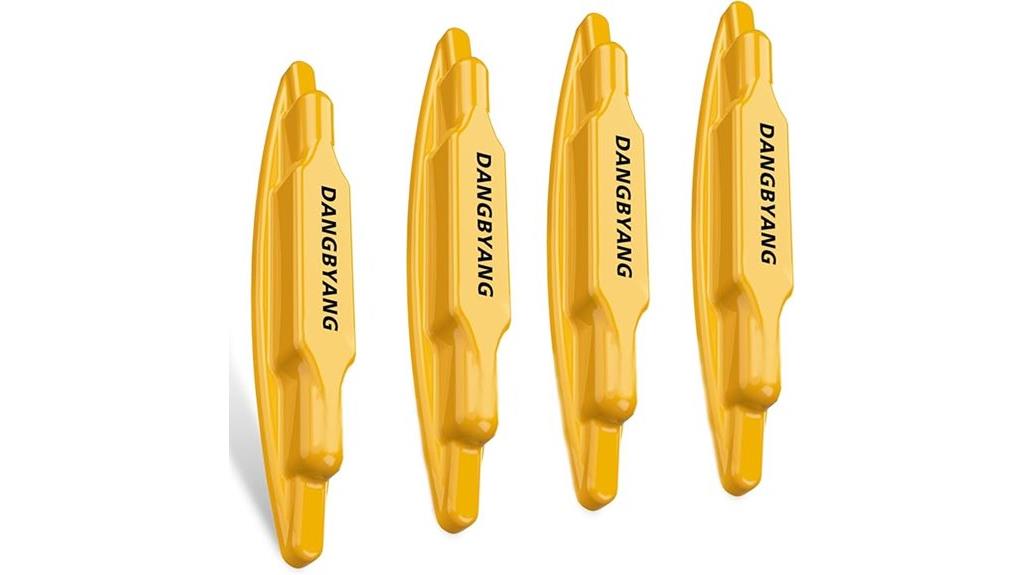
Achieving accurate wall stud detection without the need for batteries or calibration, the 4 PCS Magnetic Stud Finder by DANGBYANG stands out as an excellent choice for DIYers and professionals alike. These tools are compatible with all drywall types, making them versatile for both new and older homes—though they’re not suitable for lath and plaster walls. Made from durable plastic with strong neodymium magnets, they latch onto metal screw or nail heads, pinpointing stud locations precisely. Lightweight and ergonomic, they’re easy to handle without damaging walls. With four tools included, they offer a cost-effective, reliable, damage-free solution for quick stud detection.
Best For: DIYers and professionals seeking a quick, damage-free method to locate wall studs without batteries or calibration.
Pros:
- No batteries or calibration required, providing instant and reliable detection
- Compatible with all drywall types, suitable for both new and older homes
- Compact, lightweight, and ergonomically designed for ease of use and wall protection
Cons:
- Magnetic strength may vary, with some users experiencing weaker pull than expected
- Not suitable for lath and plaster walls, limiting its versatility in older construction types
- May be less effective in detecting metal studs compared to electronic stud finders
6-in-1 Wall Scanner with Stud and Wire Detection

If you’re looking for a versatile tool that simplifies wall scanning, the POROMETISTO DSF01 6-in-1 Wall Scanner stands out with its all-encompassing detection modes. It can find wood studs, metal objects, live wires, joists, and water-filled pipes, providing depth readings for safer drilling. The device features an easy-to-read LCD display, color indicators, and audible alerts to help pinpoint targets quickly. Its lightweight design and protective pouch make it user-friendly and portable. Perfect for hanging shelves, installing appliances, or inspecting older walls, this scanner offers reliable, multi-material detection—making it a valuable addition to any DIY or professional toolkit.
Best For: DIY enthusiasts, homeowners, and professionals needing a comprehensive wall scanner for safe and accurate detection of studs, wires, pipes, and other materials behind walls.
Pros:
- Offers six detection modes including wood studs, metal objects, live wires, joists, and water-filled pipes for versatile use.
- Features an easy-to-read LCD display with color indicators and audible alerts for quick, accurate pinpointing.
- Lightweight, portable, and comes with a protective pouch, making it convenient for on-the-go use and various projects.
Cons:
- False positives may occur, especially with electrical wires, potentially requiring careful interpretation.
- Depth detection accuracy can vary depending on wall material and thickness, which might limit precision in some cases.
- Some users report that calibration may take time to perfect, especially when switching between different wall types.
Vaughan Magnetic Stud Finder Leveler
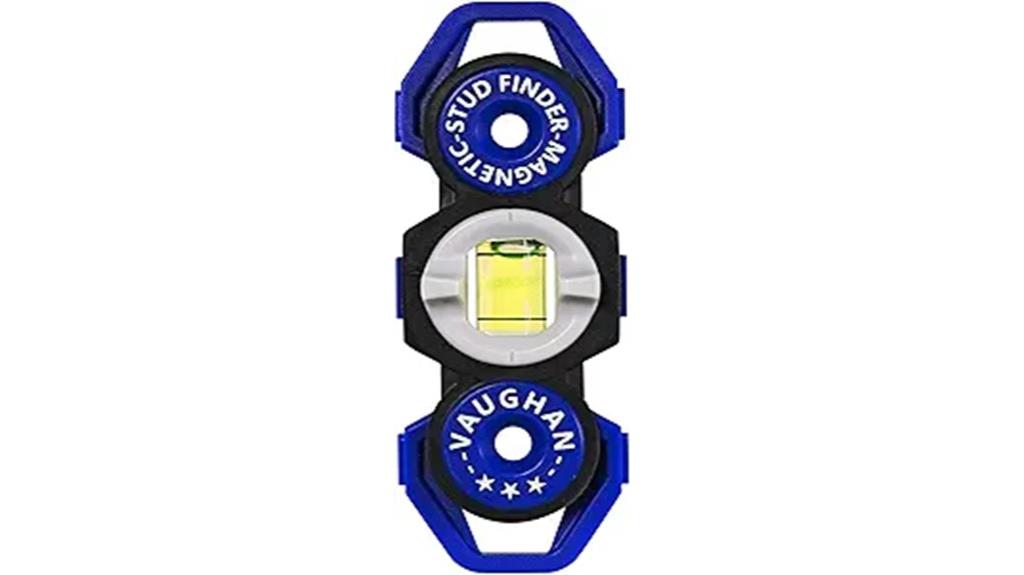
For those seeking a compact and versatile magnetic stud finder, the Vaughan Magnetic Stud Finder Leveler stands out with its combination of a magnetic nail locator and built-in level. Its small, lightweight design makes it easy to handle and store, thanks to the built-in hang hole. The device locates screws, nails, and metal studs using a strong magnet, ideal for drywall and plaster applications. The double-injected housing ensures durability, while the integrated level and plumbing functions help with precise alignment. As an official licensed product, it offers reliable quality from Vaughan & Bushnell Manufacturing Co., making it a practical choice for quick, accurate stud detection.
Best For: DIY enthusiasts and professionals seeking a compact, reliable magnetic stud finder with leveling capabilities for drywall and plaster applications.
Pros:
- Combines magnetic nail locator with built-in level for versatile use
- Compact, lightweight design with built-in hang hole for easy storage
- Durable double-injected housing ensures long-lasting performance
Cons:
- Limited to detecting metal studs, nails, and screws; cannot locate non-metallic studs
- Small size may require careful handling to avoid misplacement
- May not work effectively on surfaces with heavy metal interference
Factors to Consider When Choosing a Magnetic Stud Finder for Drywall

When selecting a magnetic stud finder, I consider factors like magnet strength, wall material, and detection depth to guarantee reliable results. Ease of use, size, and portability also matter for convenience during projects. Let’s explore these key points to help you choose the best tool for your drywall needs.
Magnet Strength and Pull
Magnet strength is a crucial factor because it directly affects how well a magnetic stud finder can detect metal fasteners behind drywall. The pull force, often measured in pounds, determines how securely the magnet attaches to nails or screws, making detection more reliable. Stronger magnets, with 27 pounds of pull force or higher, excel at finding fasteners through thicker materials and in challenging conditions. The type of magnet also matters; neodymium magnets are among the strongest and most durable for this purpose. Keep in mind, as wall thickness increases or when using non-metallic fasteners, higher pull force becomes even more important. Ultimately, a magnet’s strength influences both detection accuracy and ease, helping you find studs with confidence and minimal false negatives.
Wall Material Compatibility
Choosing the right magnetic stud finder depends heavily on the wall material you’re working with. These devices work best on drywall with metal fasteners like nails or screws, which they detect through magnetic attraction. However, they can struggle behind non-metallic materials such as plaster, lath, or older walls that lack metal fasteners. The magnetic strength must be enough to penetrate the wall surface and reach embedded metal components for reliable detection. Thicker walls, multi-layer drywall, or tile over drywall can weaken the magnetic pull, reducing accuracy. If your wall doesn’t contain ferrous metal fasteners or is made of non-metallic materials, a magnetic stud finder may not be effective. Always consider your wall composition to ensure your chosen device will deliver accurate results.
Detection Range and Depth
The detection range and depth of a magnetic stud finder are essential factors that determine how effectively it can locate metal fasteners behind drywall. Typically, their detection depth ranges from 1/2 inch to 3/4 inch, depending on magnet strength and wall thickness. Stronger neodymium magnets can detect fasteners through thicker drywall or surface coatings more reliably. The effective detection range also depends on the spacing of fasteners; closely spaced nails or screws give better locating points. Some models can detect metal studs or fasteners behind multiple layers of material, but their accuracy diminishes with increased wall thickness. For better detection depth and range, choose a magnetic stud finder with higher pulling force—27 pounds or more—especially for denser walls or multiple layers.
Ease of Use
When selecting a magnetic stud finder, ease of use should be at the top of your list. A good tool is simple to operate, requiring minimal effort to locate metal fasteners behind drywall. Look for models that don’t need calibration, batteries, or electronic components—these make setup and use quick and hassle-free. The design also matters; features like a smooth sliding surface or ergonomic grip can make maneuvering easier and more comfortable. Strong, reliable magnets that attract nails or screws effortlessly boost confidence and reduce the number of passes needed. Additionally, clear visual indicators or tactile feedback, such as a magnet firmly sticking to a fastener, help you identify stud locations quickly and accurately without confusion or guesswork.
Size and Portability
A compact magnetic stud finder is essential for anyone who values convenience and ease of use on the job. Its small size makes it highly portable, so you can easily carry it around and store it without hassle. Lightweight models, often under 3 ounces, help reduce fatigue and allow for comfortable handling, even during extended projects. The slim design fits neatly into pockets or tool belts, enabling one-handed operation and easy maneuvering around walls, tight spaces, or behind furniture. Plus, a portable size means you don’t need bulky storage or extra cases—just grab it and go. Whether you’re working on a quick fix or a detailed project, a compact magnetic stud finder offers the flexibility and ease of transport that every DIYer and professional needs.
Durability and Build
Choosing a magnetic stud finder that can withstand daily use means prioritizing durability and solid construction. Look for models made from high-quality, impact-resistant plastic or metal to handle drops and frequent handling. The magnets should be encapsulated or coated to prevent corrosion and maintain their magnetic strength over time. Reinforced construction and precise assembly are essential to prevent parts from loosening or breaking during use. Weather-resistant or rust-proof materials extend the device’s lifespan, especially if you work in varying environments. An ergonomic design with a comfortable grip and safe surfaces helps prevent damage during handling. Investing in a well-built model ensures reliability, longevity, and consistent performance, making your job easier and more efficient in the long run.
Safety Considerations
Safety should be a top priority when selecting a magnetic stud finder for drywall, as improper use can lead to injuries or damage. Using a magnetic finder helps reduce the risk of hitting electrical wires or plumbing, since it detects metal fasteners behind the drywall. This minimizes accidental damage and promotes safer drilling. However, handling strong magnets carefully is essential to avoid pinched fingers or unintended attraction to ferrous objects. Always make sure you’re using the device on appropriate wall types—like drywall with metal fasteners—to prevent false readings that could lead to unsafe drilling spots. Regularly inspecting your stud finder for damage or weakened magnets is also critical to keep it reliable and safe over time. Proper precautions make your DIY projects safer and more efficient.
Price and Value
The price of magnetic stud finders can vary considerably, from under $10 for basic models to over $30 for premium options with stronger magnets and extra features. While budget-friendly options still reliably detect studs in drywall, investing a bit more often means better magnetic strength, durability, and accuracy, offering greater long-term value. Cheaper models may lack features like wall-safe coatings or multiple magnets, but they can suffice for simple tasks. Comparing price to performance is key; spending more upfront might reduce the need for multiple tools and improve reliability. When choosing, consider overall value—build quality, magnetic strength, and user reviews—to find a tool that balances cost and effectiveness for your drywall projects. Ultimately, a slightly higher investment can lead to more precise, hassle-free detection.
Frequently Asked Questions
How Do Magnetic Stud Finders Detect Studs Behind Drywall?
Magnetic stud finders detect studs behind drywall by sensing the small metal components within the studs, like nails or screws. I simply move the finder along the wall, and when it locates metal, it pulls or sticks, indicating a stud’s position. This method is quick and reliable, especially in drywall where other types might struggle. I find magnetic finders handy because they’re straightforward and don’t require batteries.
Are Magnetic Stud Finders Safe for All Wall Types?
Imagine you’re installing shelves and wonder if a magnetic stud finder is safe for your delicate tile wall. In my experience, magnetic stud finders are generally safe for all wall types because they detect metal studs or screws, not the wall material itself. However, I’d be cautious with non-metallic walls like plaster or certain tile backsplashes, where magnetic finders might be less effective but still pose no harm.
Can Magnetic Stud Finders Locate Electrical Wires?
I get asked if magnetic stud finders can spot electrical wires, and I’d say they’re not the best tool for that. Magnetic finders detect metal, like nails or screws, but wires are often insulated, making them invisible to magnets. For safely locating electrical wires, I recommend using a dedicated wire detector or non-contact voltage tester. These tools are designed specifically to alert you to live wires behind walls.
What Is the Maximum Depth a Magnetic Stud Finder Can Detect?
Did you know magnetic stud finders can detect studs up to 3/4 inch deep? I’ve found that their maximum detection depth varies, usually between 1/2 to 1 inch depending on the model. I’ve personally tested some that work well through standard drywall, but thicker walls or dense materials can limit their reach. So, for deeper detection, I often consider combining magnetic finders with electronic ones for better results.
Do Magnetic Stud Finders Require Calibration Before Use?
Magnetic stud finders usually don’t require calibration before use, which makes them convenient. I just hold the device steady against the wall and move it slowly until it detects a nail or screw. Some models might have a switch or button to turn on, but calibration isn’t typically necessary. I find that following the manufacturer’s instructions helps ensure accurate readings and makes the process simple and quick.
Conclusion
No matter which magnetic stud finder you choose, I believe it’ll be your trusty sidekick in conquering drywall. Think of it as a magnetized compass guiding you straight to the hidden treasures behind your walls. With the right tool in hand, hanging pictures or shelves becomes a breeze, turning drywall drilling from a formidable task into a smooth sailing adventure. Happy hunting—your perfect stud finder is just a click away!
